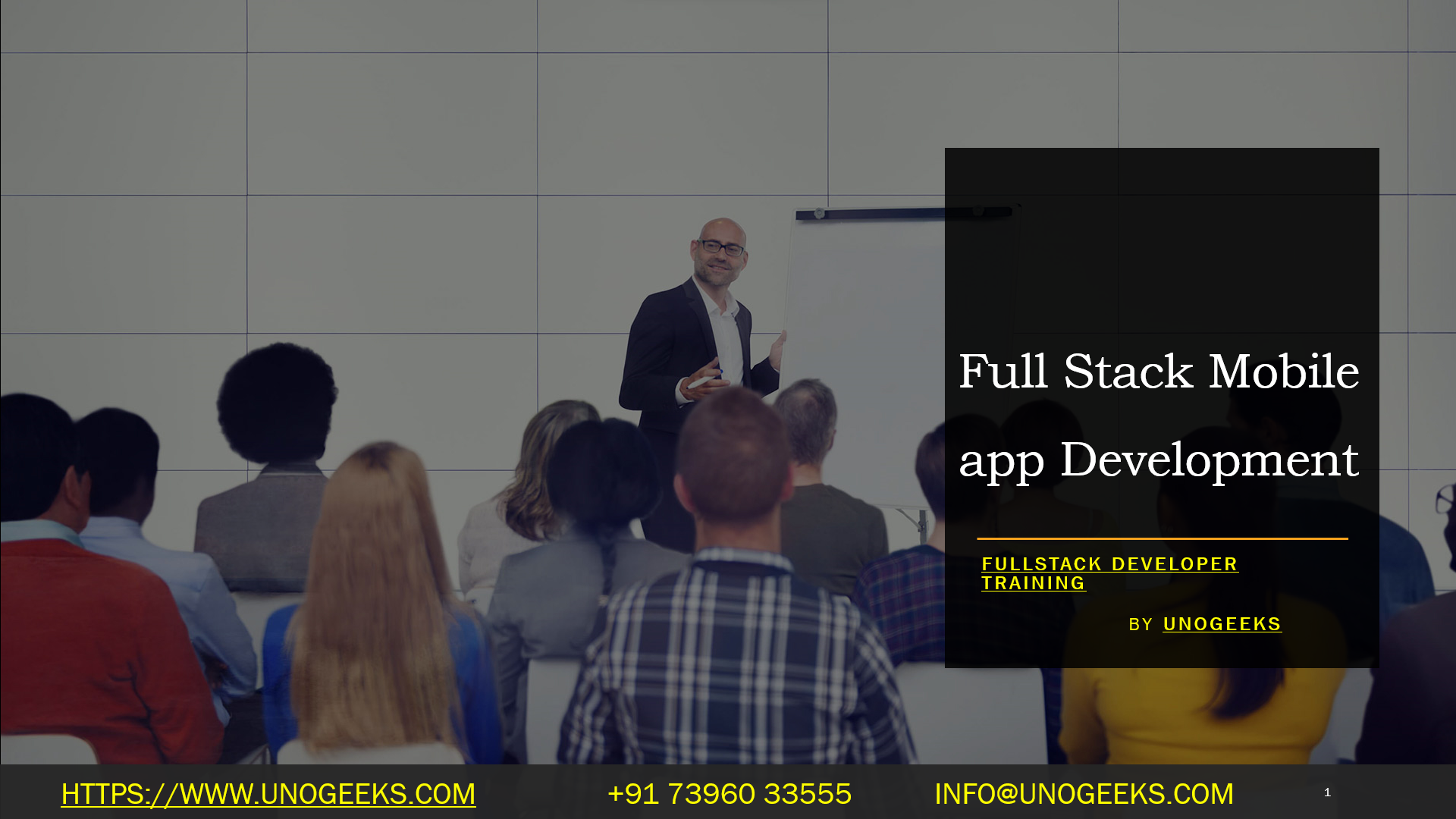Full Stack Mobile app Development
Full Stack Mobile app Development
Full Stack Mobile App Development refers to the process of building both the front-end (user interface) and back-end (server, database, and application logic) of mobile applications. A Full Stack Mobile Developer is skilled in multiple technologies and frameworks, enabling them to handle all aspects of mobile app development, from conception to deployment.
Key Components of Full Stack Mobile App Development
Front-End Development (Client Side)
- Mobile App Frameworks and Languages:
- Native Development: Using Swift for iOS and Kotlin or Java for Android.
- Cross-Platform Development: Using frameworks like React Native, Flutter, or Xamarin that allow for a single codebase for both iOS and Android.
- UI/UX Design: Understanding of design principles and tools like Adobe XD, Sketch, or Figma to create engaging and intuitive user interfaces.
- Front-End Tools: Familiarity with front-end tools and libraries for layout, navigation, and state management within the app.
Back-End Development (Server Side)
- Server-Side Languages: Proficiency in server-side languages like Node.js, Python, Ruby, or PHP.
- Database Management: Knowledge of databases, both SQL (e.g., MySQL, PostgreSQL) and NoSQL (e.g., MongoDB, Firebase).
- API Development: Ability to create and manage RESTful or GraphQL APIs for communication between the mobile front-end and the server.
- Authentication and Security: Implementing security measures and authentication protocols (like OAuth, JWT) to protect sensitive data.
Full Stack Integration
- Understanding Client-Server Interaction: Knowledge of how the front-end and back-end communicate, including handling of HTTP requests, web sockets, and data serialization.
- Version Control Systems: Proficiency in version control using tools like Git and platforms like GitHub or GitLab.
DevOps and Deployment
- Continuous Integration and Continuous Deployment (CI/CD): Automating the deployment process using tools like Jenkins, Travis CI, or GitHub Actions.
- Containerization and Virtualization: Understanding of Docker and Kubernetes can be beneficial.
- App Store Deployment: Knowledge of the process for deploying apps to the Apple App Store and Google Play Store, including adherence to their guidelines and standards.
Full Stack Developer Training Demo Day 1 Video:
Conclusion:
Unogeeks is the No.1 IT Training Institute for Full Stack Developer Training. Anyone Disagree? Please drop in a comment
You can check out our other latest blogs on Full Stack Developer Training here – Full Stack Developer Blogs
Please check out our Best In Class Full Stack Developer Training Details here – Full Stack Developer Training

———————————-
For Training inquiries:
Call/Whatsapp: +91 73960 33555
Mail us at: info@unogeeks.com
Our Website ➜ https://unogeeks.com
Follow us:
Instagram: https://www.instagram.com/unogeeks
Facebook:https://www.facebook.com/UnogeeksSoftwareTrainingInstitute
Twitter: https://twitter.com/unogeeks
